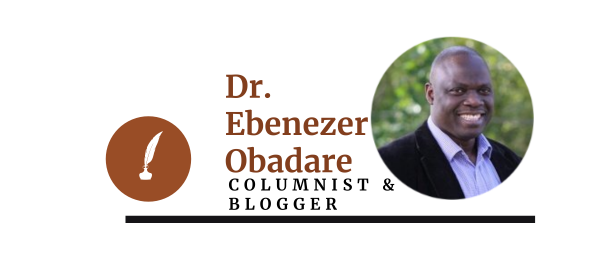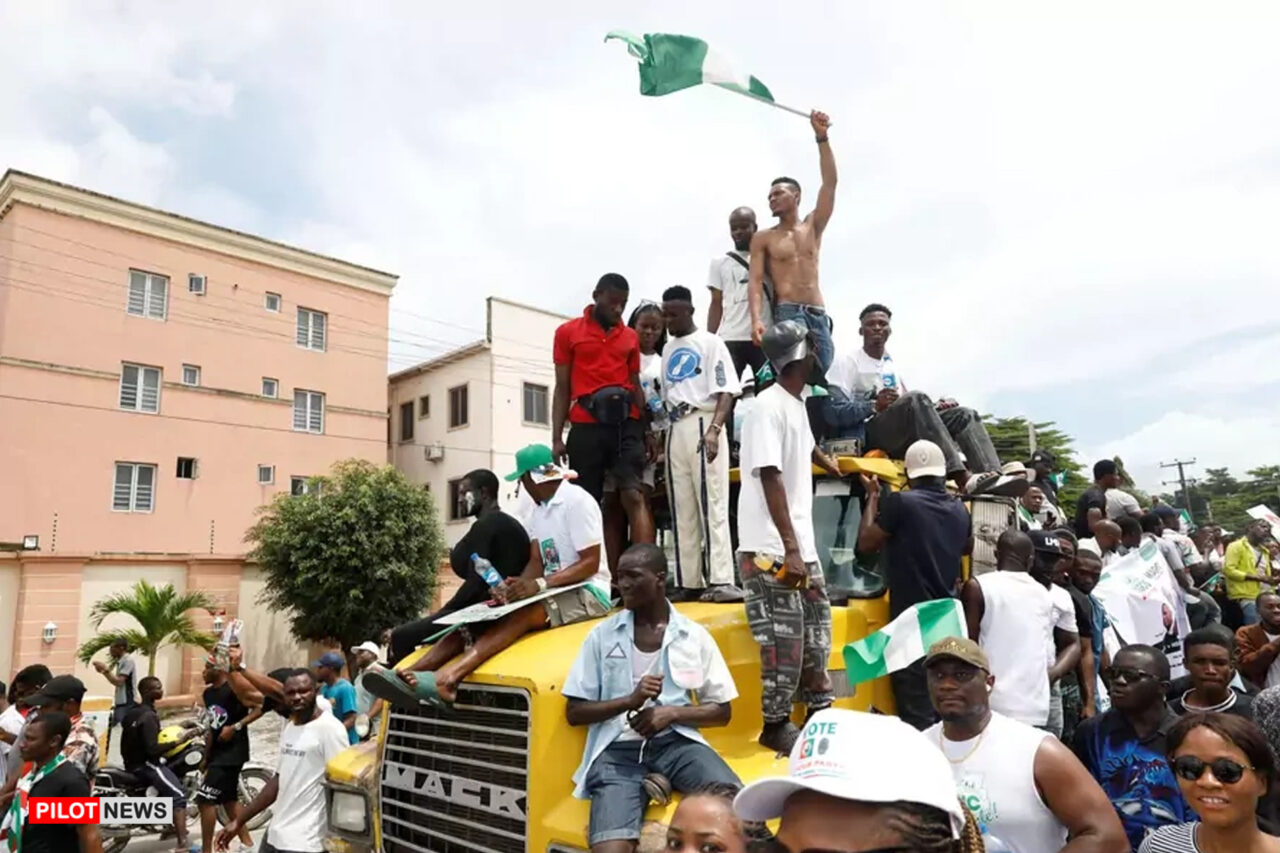Peter Obi may have lost the Nigerian presidential election, but he and the movement he leads may yet win the political war.

This time last year, no one saw Peter Obi coming. Mentally, Nigerians were preparing for yet another general election in a series dominated since the country’s return to democracy in 1999 by the incumbent All Progressives Congress (APC) and its rival People’s Democratic Party (PDP). An uninspiring two-horse race seemed all but guaranteed, and voters were more or less set to pull the lever for the lesser of two evils in a long-standing arrangement that had failed to deliver the expected “dividends” of economic relief and social stability, but that no one seemed to have either the ingenuity or the resources to challenge effectively.
All that changed in May, 2022, when Peter Obi, the former governor of the southeastern state of Anambra, sensing that a deal had been done that would eventually sideline him in favor of former vice president and perennial PDP candidate Atiku Abubakar, decided to part ways with the PDP. Obi was, contrary to mythology, no maverick outsider. Having been Abubakar’s running mate back in an unsuccessful 2019 presidential bid, he could well have stayed within the party and teamed up with him again, but, this time, Obi resolved not to play second fiddle to anyone. Indications have since emerged that his defection to the relatively unknown Labour Party was not a last-minute thing but a move instigated and fully backed by political elders in the Yoruba heartland desperate to prevent either Abubakar or Bola Tinubu, the political bigwig from the Southwest, from becoming president. Obi’s initial move may have stemmed from high-stakes political machinations, but, nonetheless, neither he nor his backers could have anticipated what came next.
In the following months, the odds of Obi becoming Nigeria’s next president changed, in a dramatic election season, from totally implausible to not unlikely to very possible, tracking the evolving mood of young people who felt at first that Obi stood no chance against the formidable machine of the old guard before becoming totally convinced that he stood as good a chance as any of disrupting the entrenched two-party system. It was the fervency and energy of these young people, the “Obi-dient” as they came to be known, that drove Obi’s startling ascendancy, raising the hope that their candidate could overcome a series of formidable structural hurdles.
Ultimately, Obi came up short, coming third behind Abubakar and Tinubu, the president-elect who, in addition to astutely crafting a winning cross-regional coalition, profited from deep division within the PDP. Rejecting the outcome of the presidential election, both Obi and Abubakar have promised to seek legal remedy. This week, Obi made good his promise when he urged the Presidential Election Petition Court in Abuja (FCT) to “either declare him the president-elect or nullify the entire election” and order a fresh one.
Yet, in a fundamental sense, and notwithstanding the outcome of their legal challenge, Peter Obi has already won. In the first place, he has established the viability of a third-party candidacy, something that the sheer entrenchment of the two-party system had made highly unlikely. Second, Obi has effectively ended the political career of 76-year-old Abubakar, a perennial presidential candidate and stalwart of the political process, making him pay a stiff price for initiating the process that led to the fracturing of the opposition PDP. Contrary to the unwritten agreement on power sharing according to which it was the South’s turn to produce the president, Abubakar in 2022 blindsided Obi and the rest of the field and secured the nomination for himself. At the moment, curiously, both Abubakar and Obi find themselves in a similar position—both believing themselves cheated out of the presidency. They may well be fighting for the same prize, but it is difficult to believe that they are ultimately engaged in the same struggle. Unlike Abubakar, Obi, sixty-two in July, still has the rest of his political career ahead of him and a real chance of securing the presidency if, among other things, he is willing to do the work to make the Obi-dient a truly pan-Nigerian movement.
For a candidate who at no time presented himself as an ethnic candidate and in fact exercised utmost caution to avoid being defined as one, Obi’s success has invigorated hopes of a successful Igbo run for the presidency, a prize that has continued to elude one leg of Nigeria’s famed ethnopolitical trident since the conclusion of the Nigerian Civil War in 1970. Part of the reason why many Igbos embraced Obi’s candidacy—and why he enjoyed such vociferous support in the heavily Igbo southeastern region—was precisely because the Igbo saw him as an answer to their longstanding yearning to have one of their own in the seat of power. Insofar as the Igbo, perhaps correctly, perceive that exclusion from the presidency was the penalty imposed for the “wrong” of a failed secessionist attempt, Obi was the long-awaited instrument to end their political exile. The ethnic (and to a lesser extent religious Christian) element was a constant undercurrent in the Obi-dient movement, now and again butting against its foundational liberal intent but at no time close to overwhelming it. How this tension is resolved, and which of these dueling tendencies eventually prevails, will go a long way in determining the movement’s future.
If Obi can claim moral victory for the aforementioned reasons, his electoral fate seems in retrospect to have been sealed by the very architecture of his candidacy. Breaking away from a political party that he had always been a part of, he alienated himself from the largely Muslim north, widening a regional and political breach that he could not fully repair over the course of the campaign. His abysmal showing in the north will be a painful reminder of what might have been had he been able to cobble together a coalition more palatable to conservative northern power brokers. Having lived by his youth-powered, southern-tending coalition, he had to die by it. Similar to Abubakar, Obi seems to have paid the supreme price for failing to save his political marriage.
Yet another reason for Obi’s loss is, paradoxically enough, the Obi-dient. For a movement that, in its best moments, offered a glimpse of what social media allied to liberal-minded political intuitions can be, it was also, regrettably, a study in moral censorship. Holding up Obi as a moral paragon, it refused to entertain any legitimate criticism of the candidate, and in a few instructive cases went as far as attempting to “cancel” those who refused to bend the knee. As it hardened into a political cult more or less, it alienated those who tended to be sympathetic to Obi but had reservations about the rush to beatify him. In not a few cases, genuine attempts to engage were repulsed with peevish name-calling. Trapped in a discursive bubble which made it receptive only to stories of its political conquest and glory, the Obi-dient movement is an object lesson in the dangers of ideological incest. That it can ill afford to continue to harbor this censorious and self-monumentalizing impulse if it aims to broaden its base goes without saying.
What Obi himself does next is also key. If, as most likely, he loses the legal battle, he will be saddled with keeping the movement together for another assault on the presidency in four years, a period within which a lot is bound to change. While he will most likely remain in the affections of young Nigerians, there is no guarantee that the aura currently surrounding him will not fade. Nor should we rule out the possibility of Obi making an unexpected political move, something he has shown a penchant for.
At all events, the election—almost regardless of how the courts eventually rule—is a watershed for Nigeria, a profound challenge to the two-party, region-based power-sharing system, and a moment in which a new youth energy emerges vividly in the electoral sphere. Obi called it an “existential election.” What’s clearer than the political future of Obi himself is that the Obi-dient movement, having drawn a line in the sand, will henceforth have a say in how the country is governed. In the meantime, it must strive to exorcise its repellent illiberalism.
This publication is part of the Diamonstein-Spielvogel Project on the Future of Democracy. This article first appeared in CFR. Reina Patel contributed to the research for this article.
- Netherlands To Activate $250 Million New Investments In Nigeria - April 26, 2024
- ICPC To Arrest Former Director General NILDS - April 26, 2024
- Emir Of Minna Set Up Committee To Curb Vices - April 26, 2024


